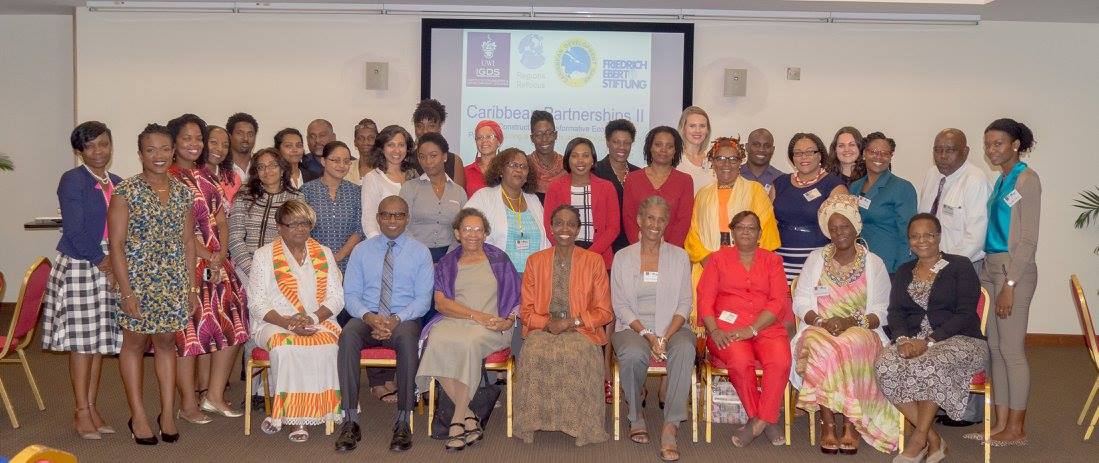Caribbean Partnerships II (CPII) built on “Caribbean Partnerships for Economic Justice and Sustainability” in 2015. Institute for Gender and Development Studies: Nita Barrow Unit at University of West Indies, Caribbean Development Bank, and Regions Refocus convened CPII participants to collectively analyze macroeconomic policy and the landscape of economic development and climate finance in the Caribbean, and strategized towards public mobilization for progressive policy proposals. The workshop allowed participants to work through concrete proposals and establish a community of thought and action, and envisioned new, creative ways of working together across ministries and movements.
In the wake of two decades of policy failure from economic liberalization and exploitative global integration, Caribbean Partnerships II (CPII) assessed Caribbean realities on several fronts. For debt, a strong anti-austerity critique took center stage, privileging its micro-level impact. Discussions of gender realities touched on the persistence of gender wage gaps despite high education for women, and the Caribbean Development Bank’s work to integrate a gender perspective into their programs. Climate funding – the obligatory funds from developed countries responsible for the bulk of greenhouse gas emissions – also presented an opportunity to create new pathways for development tackling the gender, class, and regional realities of climate change.
The session then turned to partnerships for policy change, between trade unions, civil society, and governments. The dominant model of public-private partnerships were critiqued for being accountable to international institutions and the private sector rather than local communities. Participants instead emphasized the need for progressive models of partnership that are accountable and responsive to people’s needs and demands.
A major topic of analysis was fiscal policy and participatory governance represented. A position paper and advocacy strategy represented the initial need to advance alternative fiscal policy solutions to the debt crisis– these could form the basis for accessible communications tools and workshops to mobilize public engagement, as was successful with the Citizens’ Budget project in Jamaica. After the session, participant Rosalea Hamilton (Institute for Law and Economics) developed a brief in the Reimagining Regionalism collection on fiscal policy and participatory budgeting.
Climate finance represented another arena for advocacy. Participants strategized around the Group of 77 and China (G-77), the organization of developing countries in the United Nations, to advocate for progressive positions on gender and climate change. Several participants committed to providing feedback on a position paper on gender and climate change addressed to CARICOM negotiators within the G-77. A small group also formed an initial Caribbean collaborative project on climate finance, to gather information and build knowledge in the region. The group strategy session on climate finance proposed the establishment of a Caribbean Community Climate Change Center, to serve as a regional hub for research and knowledge sharing. Participants identified the importance of regional linkages and local knowledge, beyond technological solutions centered on behavior change.









